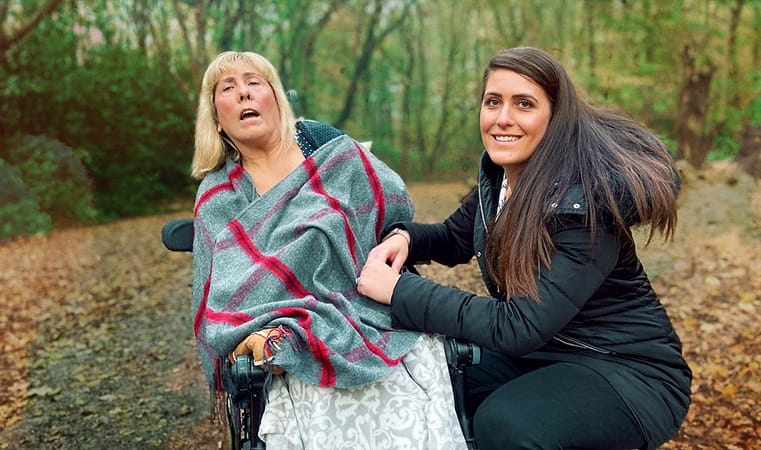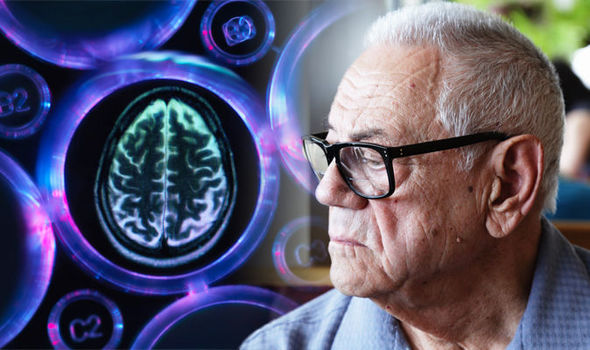
Dementia is a severe condition that affects the lives of nearly 6 million people in the United States, and 72% of these people are ages 75 and older. Not only does it affect the individual, but it also affects family and friends that love them.
Everyone knows the most common signs of dementia: memory loss, depression, and confusion. These symptoms can be split into smaller categories that are each treated differently. Understanding these differences can be crucial to correctly diagnosing dementia and giving you or a loved one proper treatment.
ADVERTISEMENT
What Is Dementia?
Dementia is a general term for the impaired ability to think, remember, and make decisions to a point where it interferes with one’s daily life. Examples include forgetting friends, family, and recent events, struggling to find and remember a word later, and misplacing items.
Dementia can also be accompanied by confusion, depression, and anxiety. Other people may have issues focusing, communicating, and using unusual words for familiar objects.
These are only a few symptoms of dementia; these can vary widely from person to person. Because of this, a person might have many different types of dementia. A few well-known ones include Alzheimer’s Disease, which is the most common, Parkinson’s Disease, Huntington’s Disease, Vascular Dementia, Lewy Body Dementia, and Mixed Dementia.

Alzheimer’s Disease
Alzheimer’s disease is the most common type of dementia. A progressive nature characterizes it, meaning symptoms begin mild and worsen as time passes. Alzheimer’s disease involves the part of the brain that controls thought, memory, and language; a case of Alzheimer’s may begin with short-term memory loss and progress into the inability to complete daily activities. Age and family history are the best-known risk factors for the disease.
ADVERTISEMENT

Parkinson’s Disease
Unlike Alzheimer’s, Parkinson’s disease affects the body’s nervous system, which involves movement. Therefore, symptoms may start gradually and continue to get worse. A person with Parkinson’s disease may have uncontrollable movements, difficulty with balance, coordination, and experience shaking or stiffness. Initially, people with the condition may have tremors until they cannot walk or stand on their own. Most cases happen for unknown reasons, although sometimes it is inherited.

Huntington’s Disease
Huntington’s disease is rare and progressive, affecting both the physical and mental aspects of an individual. This disease can cause neurons in the brain to die, which can cause a wide range of symptoms. For example, Huntington’s disease can cause uncontrollable muscle rigidity, unusual eye movements, and difficulty balancing. It can also cause difficulty organizing and learning new information, a lack of impulse control and awareness, and slow processing of thoughts. Huntington’s disease is genetic.

Vascular Dementia
Vascular dementia is caused by damage to the blood vessels in the brain and interrupts the flow of blood and oxygen. It affects thought processes like reasoning, planning, judgment, and memory, and its course is often unpredictable. Some cases of vascular dementia are hereditary, but they usually are caused by a mix of genetic traits and the environment the individual is in.

Receiving Treatment
While dementia technically can’t be cured, there are many ways to manage symptoms effectively. Despite common belief, symptoms can be handled daily, and many habits can help or prevent it from occurring.
Poor sleep quality can worsen the effects of dementia. So be sure to go to sleep, wake up at a reasonable hour, and have a consistent sleep schedule each night. Also, indulging in relaxing activities before bed, like reading and bathing, can help ease into sleep while calming the mind.
Be physically active for 30 minutes on most or all days of the week. Exercising will help you live an active lifestyle and, when combined with a healthy diet, can help manage anxiety and depression that may be symptoms of dementia.
ADVERTISEMENT
Stay social with friends and family. Keeping in touch with those around you, especially those who love you, will provide you with the support you may need to thrive.
Some patients with this condition may require dementia home care services. Luckily, there are many opportunities to receive this kind of help and efficiently treat people with dementia with outside assistance. If you’re interested in joining the field to help those with dementia, earning a master of social work online can be one way to do so. Social workers can help caregivers cope.

In Conclusion
Living with dementia can be difficult at any stage of life. The types of dementia listed here are only a few of a very long list; some other types are Lewy Body Dementia, Frontotemporal Dementia, Creutzfeldt-Jakob Disease, Normal Pressure Hydrocephalus, and more. Understanding the types of dementia can be the first crucial step to treating the condition.
ADVERTISEMENT
ADVERTISEMENT











